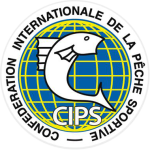Antidoping
The main CIPS interest is to improve the care of the environment and, in logical consequence, the athletes’ body and mind health. That’s the reason of our recommendation for an ecologic approach to our sport that includes the fight against any dangerous substance or method utilized by unfair people to compete among real (fair) athletes. And that’s the reason why the CIPS Policy promotes healthy lifestyles: to stop smoking, to reduce alcohol intake, to increase physical activity and adhere to a correct nutritional behaviour, with particular regard towards the nonsense intake of food supplements and misuse (off -label) of medicines. That is in according to the campaign “Gain Health” promoted by the World Health Organisation that CIPS considers has to be a guideline also for WADA.
As known, one of the main problems in the antidoping fight for CIPS is the unaware intake of drugs, taken for medical reasons, included in the list of prohibited substances.
In these cases, the unawareness together with the very low knowledge of the anti-doping rules, are the reasons for the majority of the ADRV for CIPS Athletes and for the lack of the necessary preventive application for the Therapeutic Use Exemption.
That’s the case of diuretic agents, considered “masking” agents but used by anglers essentially to treat arterial blood hypertension. Very often they assume, for the same health reason, also beta-blockers, not included in the list for our kind of sport.
So CIPS aims to increase the knowledge and the awareness about this problem.
Besides that, CIPS underlines the unfairness and the health danger of voluntary assumption of performance enhancing drug, while a good education, together with an efficient careful oversight, must be run by IF.
As it results from the doping controls conducted until now, fishing doesn’t normally carry with it the idea that a substance could be crucial to tamper with the result of a competition.
For this purpose, CIPS makes use of the support of ITA – the International Testing Agency, for the management of the TUE requests
What is doping
Doping is defined as the occurrence of one or more of the following Anti-Doping Rule Violations (ADRVs) according to article 2 of the WADA Code
• Presence of a prohibited substance in an athlete’s sample
• Use or attempted use of a prohibited substance or method
• Refusing to submit to sample collection after being notified
• Failure to file athlete whereabouts information and missed tests
• Tampering with any part of the doping control process
• Possession of a prohibited substance or method
• Trafficking a prohibited substance or method
• Administering or attempting to administer a prohibited substance or method to an athlete
• Complicity in an ADRV
• Prohibited association with athlete support personnel who has engaged in doping
Why is doping prohibited in Sport
The use of doping substances or doping methods to enhance performance is fundamentally wrong and is detrimental to the overall spirit of sport. Drug misuse can be harmful to an athlete’s health and to other athletes competing in the sport. It severely damages the integrity, image and value of sport, whether or not the motivation to use drugs is to improve performance. To achieve integrity and fairness in sport, a commitment to clean sport is critical.
TUE Requests
The athletes participating in the Championship, with the registration, implicitly accept all WADA anti-doping rules.
Athlete whose illness or condition requires treatment with a prohibited substance or method must apply to CIPS for a Therapeutic Use Exemption (TUE) following the CIPS strict TUE application process.
He/she shall then use the application form, which can be downloaded from the ITA website.
The TUE request has to be sent to the following address: tue@ita.sport
Athletes must therefore consult the Prohibited List.
If the TUE is granted, the athlete will then be permitted to use the medication during the period of validity of the TUE without committing an Anti-Doping Rules Violation (ADRV).
Regardless of whether a TUE has been granted or not, athletes should always declare on the doping control forms filled out during sample collection any medications and supplements taken within the seven days prior to sample collection, and any blood transfusions in the three months prior for blood samples.
If a TUE has already been granted by a NADO or by a RADO, the Athlete in question does not have to apply for any additional CIPS TUE, as CIPS recognizes all TUE granted by NADOs and RADOs.
Education plan
CIPS intends to respond to current and future challenges in the fight against doping. The Education Program WADA at promoting a clean sport and raise awareness on the consequences and risks of doping.
We believe that, as athletes, the first experience with anti-doping should be through education. Before undergoing a doping control and before leaving the country for their first competition as international level athletes, it is important that representative athletes are aware of, among other things, the following:
– Rights and responsibilities in the doping control process
– List of prohibited substances and methods
– Exemptions for therapeutic use
– Doping control process
– Consequences of doping (health and sport)
WADA’s Anti-Doping Education and Learning Platform (ADEL): https://www.wada-ama.org/en/athletes-support-personnel/anti-doping-education offers educational solutions to Anti-Doping Organizations for use in their education programs, including courses and resources for athletes, coaches, parents, medical professionals, and other target audiences. ADEL also offers role-specific training programs for anti-doping practitioners and a wide range of digital resources to support the development of their anti-doping programs.
https://www.wada-ama.org/en/news/wada-publishes-adel-three-years-report
